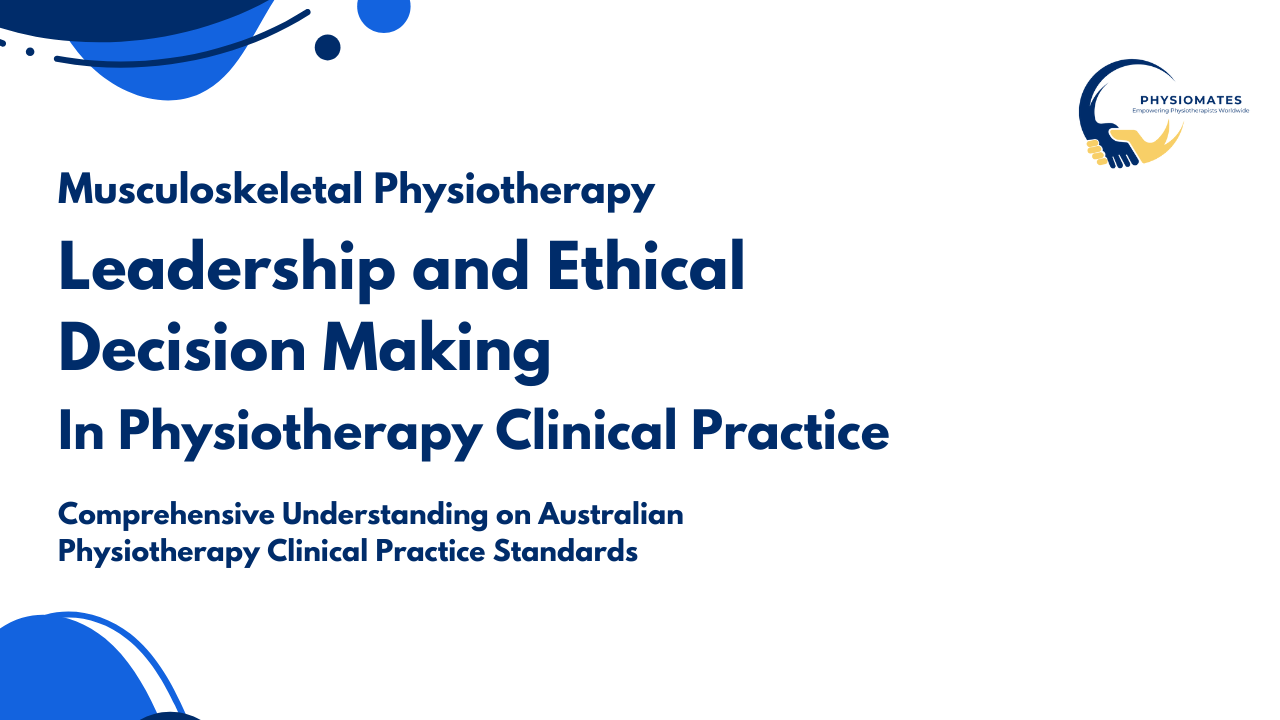
About Course
This Physiotherapy CPD course is designed to equip physiotherapists with the critical knowledge and practical tools needed to navigate the complex professional, ethical, and regulatory landscape of modern physiotherapy practice—particularly within the Australian healthcare system.
Thank you for reading this post, don't forget to subscribe!This course explores the foundations of effective leadership, delving into various leadership styles and their relevance within clinical teams and multidisciplinary environments. Whether you’re a new graduate stepping into your first clinical role or a seasoned practitioner leading a team, you’ll gain insights into how leadership influences patient outcomes, team culture, and service delivery.
In parallel, the course offers a detailed exploration of ethical practice. You will examine the Australian Physiotherapy Association (APA) Code of Conduct, understand key ethical principles, and learn how to apply these in real-world scenarios. Topics such as professional boundaries, informed consent, clinical confidentiality, and financial ethics—including honest billing and fair marketing—are discussed in depth.
Additionally, this course provides a clear understanding of the rules and regulations governing physiotherapy practice in Australia, including registration requirements, scope of practice, and mandatory reporting obligations under the Australian Health Practitioner Regulation Agency (AHPRA).
A strong emphasis is placed on patient-centred care, encouraging participants to align clinical decisions with patient values, preferences, and individual circumstances. Through engaging case studies, interactive discussions, and reflective tasks, participants will build the confidence to tackle complex leadership and ethical challenges in a structured and principled manner.
Whether your goal is to become a more effective team leader, better understand your legal and ethical responsibilities, or enhance your patient relationships, this course will serve as a foundation for professional excellence and leadership in physiotherapy practice.
About the Musculoskeletal Physiotherapy Program Instructor

The musculoskeletal physiotherapy program is led by Mustufa Kagdi, MACP, APAM, a highly accomplished Titled APA Musculoskeletal and Sports & Exercise Physiotherapist based in Australia. With nearly two decades of experience and expertise in advanced manual therapy, biomechanics, and pain science, Mustufa has successfully mentored physiotherapists at all levels.
Having completed his Master of Manual and Sports Physiotherapy at the University of South Australia, Mustufa brings a wealth of knowledge about Australian physiotherapy practice and standards. His interactive teaching style and deep understanding of clinical reasoning make this program a must for international physiotherapists aiming to thrive in Australia.
Course Content
Lesson 1
Topic 1
28:03
Lesson 2
Lesson 3
Assignment
Student Ratings & Reviews


